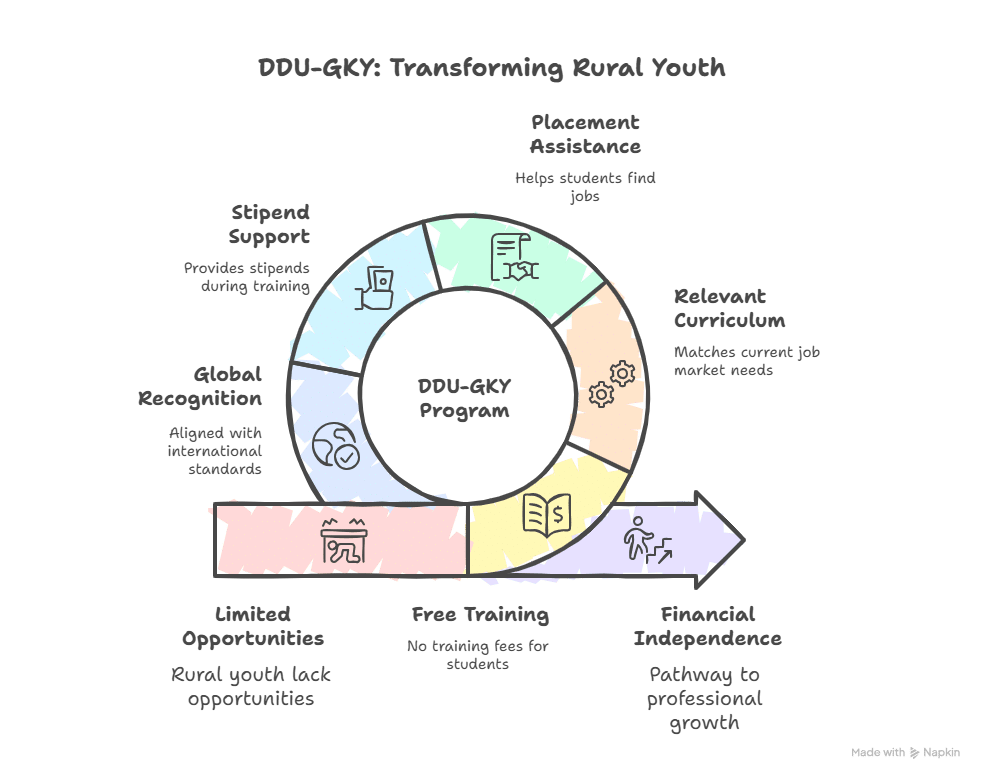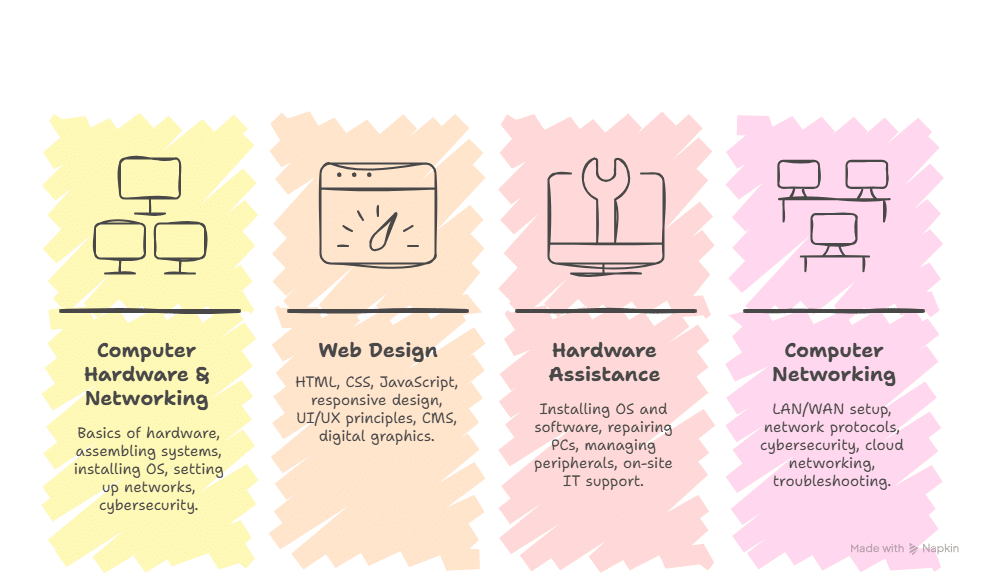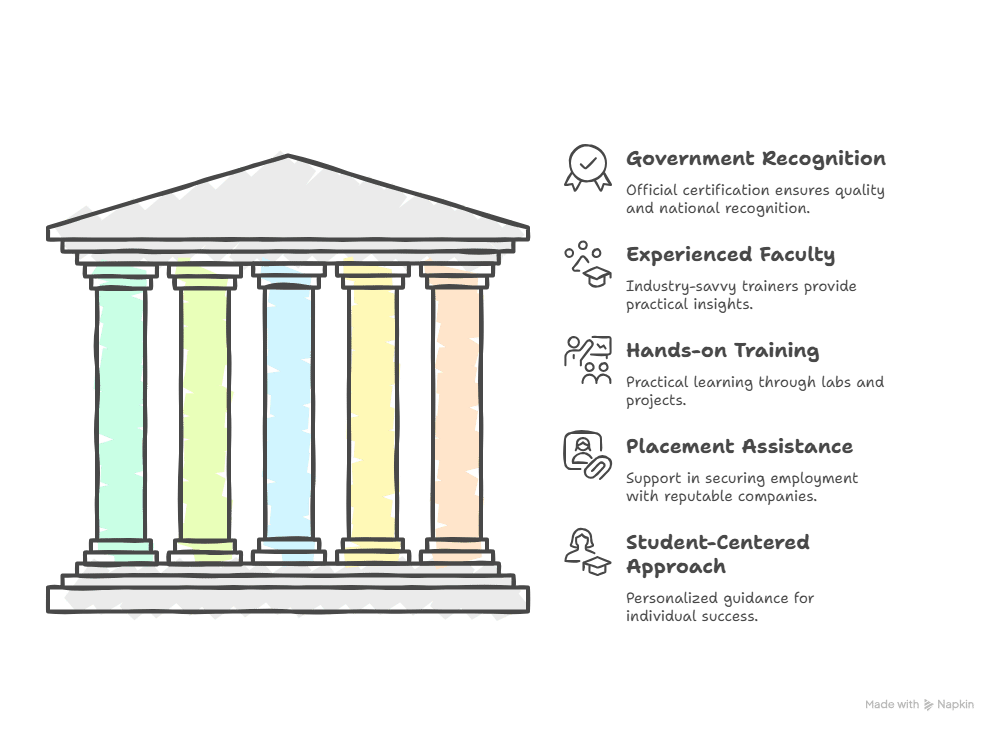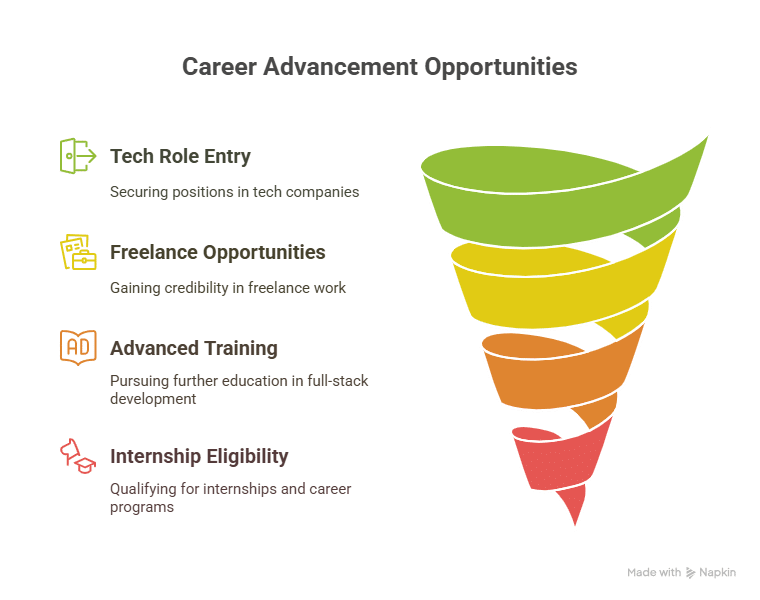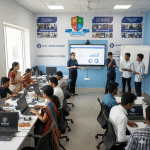Advanced Certified TNSDC Training course in 2025
In 2025, TNSDC Training courses have become a hot choice among youth in Tamil Nadu, driven by the state’s robust industrial growth and a pressing need for skilled professionals. The Tamil Nadu Skill Development Corporation (TNSDC) has been instrumental in bridging the skill gap by offering government-recognized, industry-aligned courses at no cost to eligible candidates. These programs encompass sectors such as IT, electronics, and manufacturing, and are designed to provide hands-on training that meets current industry demands. Graduates receive nationally recognized certifications, enhancing their employability both within India and internationally.
Elysian Skill India stands out as a leading training center in this initiative, offering a comprehensive range of TNSDC Training courses. Located in Madurai, Elysian Skill India provides integrated programs in areas like Computer Networking, Hardware Assistance, Web Development, and Data Structures with Machine Language. These courses are meticulously crafted to align with the National Skills Qualification Framework (NSQF), ensuring standardized quality and practical application. Elysian Skill India exemplifies the transformative impact of TNSDC Training courses on the youth of Tamil Nadu.
What is TNSDC and Why It Matters for Job Seekers
Understanding TNSDC
The Tamil Nadu Skill Development Corporation (TNSDC) is a pivotal state government initiative aimed at enhancing the employability of youth in Tamil Nadu. Established as a non-profit entity under the Companies Act, TNSDC operates under the Department of Special Programme Implementation, coordinating skill development activities across various government departments. Its mission is to bridge the skill gap by providing industry-relevant training that aligns with the National Skills Qualification Framework (NSQF). TNSDC offers a diverse array of short-term courses in sectors such as electronics, manufacturing, and information technology, focusing on job roles like CNC operators, welders, and industrial automation technicians.
For job seekers in Tamil Nadu, TNSDC represents a gateway to skill enhancement and employment opportunities. The corporation’s training programs are designed to meet the evolving demands of the job market, ensuring that participants acquire practical skills that are directly applicable in various industries. Moreover, TNSDC collaborates with training partners like Elysian Skill India, which offers specialized courses under the TNSDC Training course framework. These partnerships facilitate access to quality education and placement support, thereby increasing the chances of securing employment post-training. By engaging with TNSDC’s initiatives, job seekers can significantly improve their skill sets, making them more competitive and adaptable in the dynamic workforce landscape.
Role in enhancing employability
The Tamil Nadu Skill Development Corporation (TNSDC) plays a pivotal role in enhancing employability for both freshers and working professionals in the state. By offering government-recognized, industry-aligned training programs, TNSDC equips individuals with practical skills that meet the evolving demands of various sectors. These programs, which are often free for eligible candidates, provide certifications that are widely recognized, thereby increasing job prospects and career advancement opportunities.
Elysian Skill India, an authorized TNSDC training partner, further amplifies these benefits by offering specialized courses designed to bridge the gap between education and employment. Their TNSDC training courses focus on both technical and soft skills, ensuring that participants are well-prepared for the workforce. With a proven track record of successful placements, Elysian Skill India has become a trusted institution for individuals seeking to enhance their employability through TNSDC training.
How TNSDC aligns with industry requirements

• Industry-Relevant Curriculum
In 2025, the Tamil Nadu Skill Development Corporation (TNSDC) has restructured its courses to match the latest industry requirements. By collaborating with over 450 training partners across more than 40 sectors, TNSDC ensures its programs are up-to-date and aligned with employer expectations. The curriculum emphasizes practical knowledge, covering sectors like IT, electronics, manufacturing, and advanced automation. This focus on industry relevance ensures that students acquire skills directly applicable to the modern workforce, making them more employable.
• Hands-On Training Opportunities
One of the primary ways TNSDC meets industry demands is through hands-on training. Practical sessions, live projects, and real-world simulations are integrated into programs to provide learners with experience beyond theoretical knowledge. Institutions like Elysian Skill India excel in offering these immersive learning experiences through their TNSDC Training course programs. This approach prepares students to tackle real workplace challenges effectively.
• Collaboration with Industry Partners
TNSDC collaborates extensively with industry partners to stay updated on emerging trends and technological advancements. These partnerships allow for regular feedback, ensuring the courses evolve according to employer requirements. Elysian Skill India leverages these collaborations to design courses that not only teach skills but also simulate professional environments, bridging the gap between academia and industry.
• Soft Skills and Professional Development
Beyond technical skills, TNSDC emphasizes soft skills such as communication, teamwork, problem-solving, and leadership. These abilities are crucial for freshers and working professionals aiming to succeed in corporate and industrial environments. Through their TNSDC Training course offerings, Elysian Skill India incorporates modules that focus on personality development and workplace readiness, enhancing overall employability.
• Government-Recognized Certification
The certifications provided by TNSDC are nationally recognized, giving learners a competitive edge in the job market. These credentials validate the practical skills gained and assure employers of the candidate’s proficiency. Courses offered by Elysian Skill India under the TNSDC framework provide both skill mastery and credible certification, helping students secure better job placements.
• Career Placement and Guidance Support
Aligning training with industry needs also involves guiding students toward employment. TNSDC, together with training centers like Elysian Skill India, provides placement support, career counseling, and interview preparation sessions. This ensures that learners transition smoothly from training to professional employment, fulfilling the ultimate goal of skill development programs.
Advanced TNSDC Courses Trending in 2025
In 2025, TNSDC offers advanced training in IT, networking, software, and hardware, providing practical skills and certifications. Elysian Skill India delivers specialized TNSDC Training courses for these fields.
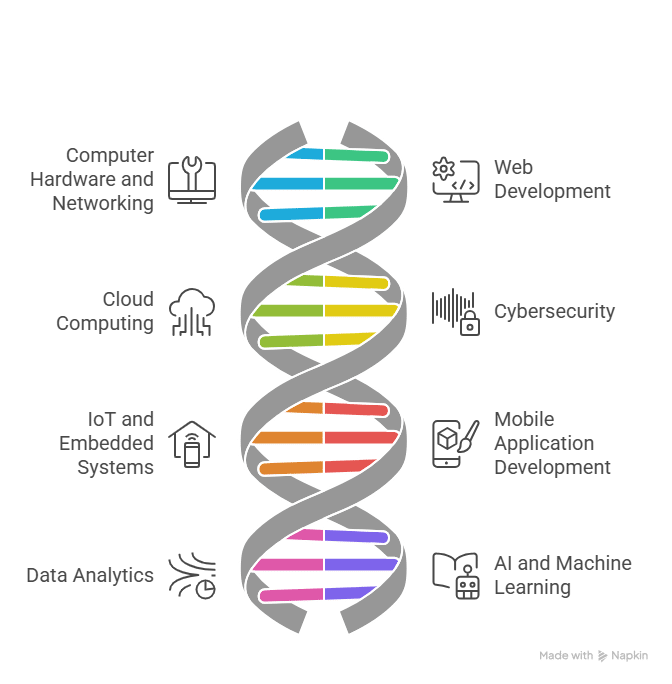
1. Advanced Computer Hardware and Networking
Elysian Skill India offers an advanced TNSDC Training course in computer hardware and networking. This program covers topics such as system assembly, troubleshooting, network device configuration, and maintenance. Students gain hands-on experience with real-world hardware components and networking equipment, preparing them for roles like network administrator or IT support technician. The course emphasizes practical skills and includes live projects to enhance learning.
2. Web Development with JavaScript and Data Structures
For those interested in software development, Elysian Skill India provides a TNSDC Training course focusing on web development using JavaScript. The curriculum includes front-end and back-end development, data structures, and machine learning basics. Students learn to build dynamic websites and applications, gaining skills that are in high demand in the tech industry.
3. Cloud Computing and Virtualization
Cloud computing is a critical area in today’s IT landscape. Elysian Skill India’s TNSDC Training course in cloud computing covers cloud infrastructure, virtualization technologies, and cloud service models. Students learn to design and manage scalable cloud solutions, preparing them for careers in cloud administration and architecture.
4. Cybersecurity Fundamentals
With the increasing threat of cyberattacks, cybersecurity skills are essential. Elysian Skill India offers a TNSDC Training course in cybersecurity that covers topics such as network security, ethical hacking, and data protection. Students learn to identify vulnerabilities and implement security measures to protect information systems.
5. Internet of Things (IoT) and Embedded Systems
The IoT sector is rapidly growing, and Elysian Skill India provides a TNSDC Training course that focuses on IoT and embedded systems. The course covers sensor integration, data acquisition, and communication protocols. Students gain the skills needed to develop and deploy IoT solutions in various industries.
6. Mobile Application Development
With the proliferation of smartphones, mobile app development is a lucrative field. Elysian Skill India’s TNSDC Training course in mobile application development teaches students to build applications for Android and iOS platforms. The curriculum includes user interface design, app functionality, and deployment strategies.
7. Data Analytics and Business Intelligence
Data-driven decision-making is vital for businesses today. Elysian Skill India offers a TNSDC Training course in data analytics and business intelligence. The course covers data visualization, statistical analysis, and the use of BI tools. Students learn to analyze data and provide insights that support business strategies.
8. Artificial Intelligence and Machine Learning
Artificial Intelligence (AI) and Machine Learning (ML) are transforming industries. Elysian Skill India’s TNSDC Training course in AI and ML introduces students to algorithms, neural networks, and data modeling. The course prepares them to develop intelligent systems and applications.
Benefits of Enrolling in Advanced TNSDC Programs
Elysian Skill India, provide comprehensive training in various sectors, including IT, healthcare, retail, hospitality, and more. By enrolling in these courses, individuals can gain industry-relevant skills, recognized certifications, and access to job opportunities, paving the way for a successful career.
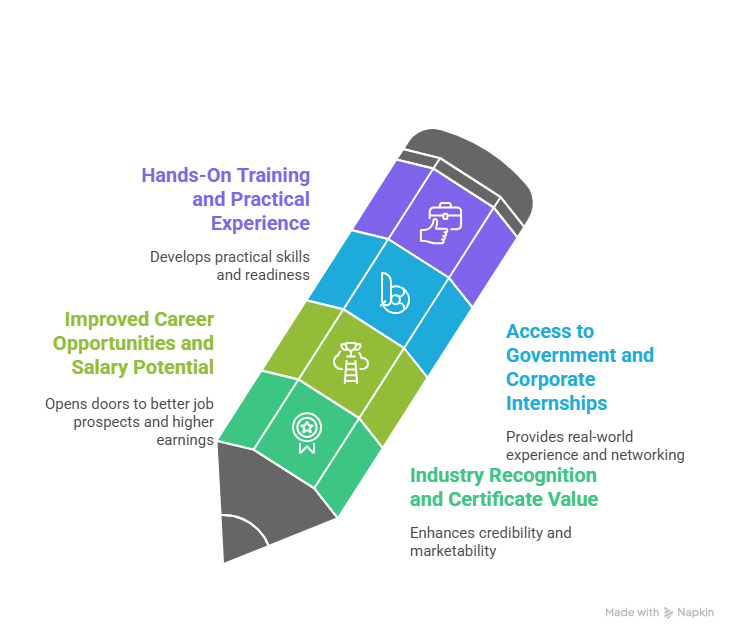
Industry Recognition and Certificate Value
- Enrolling in TNSDC programs provides candidates with certifications that are widely recognized across industries, enhancing their professional credibility.
- Elysian Skill India, as an authorized training partner, ensures that all training aligns with current industry requirements, equipping learners with relevant, practical skills.
- Successful completion awards a government-recognized TNSDC training course, boosting resumes and increasing employability, as employers value candidates with verified skills and knowledge.
Improved Career Opportunities and Salary Potential
- Advanced TNSDC programs provide individuals with specialized skills that are highly sought after across various industries, enhancing their competitiveness in the job market.
- Holding a TNSDC certification can increase career opportunities and lead to higher salary potential, as employers value recognized qualifications.
- Elysian Skill India’s training programs are tailored to industry needs, ensuring graduates are job-ready and can contribute effectively from day one.
Access to Government and Corporate Internships
- Enrolling in TNSDC programs gives individuals access to government and corporate internships, providing practical experience in real-world work environments and the opportunity to apply theoretical knowledge.
- Elysian Skill India partners with multiple organizations to facilitate these internships, offering students valuable industry exposure and networking opportunities.
Hands-On Training and Practical Experience
- TNSDC programs focus on hands-on training, enabling individuals to gain practical experience and develop the skills needed for their respective industries.
- Elysian Skill India’s modules include practical sessions, workshops, and live projects that simulate real-world scenarios, preparing students to excel in their careers.
Elysian Skill India – Trusted Training Center in Madurai
Elysian Skill India stands as a premier skill development institution in Madurai, recognized for its commitment to providing high-quality training aligned with industry standards. As an officially authorized training partner of the Tamil Nadu Skill Development Corporation (TNSDC), Elysian Skill India offers a diverse range of government-certified courses designed to enhance employability and bridge the skill gap in various sectors.
State-of-the-Art Facilities and Expert Trainers
- The institute offers modern infrastructure with the latest tools and technologies, providing students with hands-on learning and an interactive educational environment.
- Experienced trainers deliver courses that cover both technical and soft skills, ensuring students receive up-to-date, industry-relevant training for the evolving job market.
Flexible Batch Sizes and Learning Schedules
- Elysian Skill India offers flexible batch sizes and schedules, ensuring personalized attention and a conducive learning environment for all students.
- Students can choose from morning, afternoon, and weekend sessions, with both online and offline learning options to suit their preferences and time constraints.
Impressive Placement Success Rate
- Elysian Skill India has a proven placement support system, with over 1,769 students successfully placed across industries like IT, healthcare, retail, BPO, and manufacturing.
- Placement assistance includes mock interviews, resume building, and direct job placement drives, ensuring students are well-prepared to enter the workforce.
Enrollment to Employment
- From enrollment onward, students receive comprehensive support, including career counseling, course selection guidance, and continuous mentorship.
- This holistic approach ensures that students gain technical skills as well as the confidence and competencies needed to excel in their careers.
Entrepreneurship Development Opportunities
- Elysian Skill India encourages entrepreneurial thinking by offering workshops and mentorship programs as part of their TNSDC Training course, providing students with the knowledge and skills to start their own ventures.
- This initiative fosters innovation and self-reliance, empowering students to create job opportunities for themselves and others.
Recognition and Affiliation
- Elysian Skill India is affiliated with major government schemes such as PMKVY, TNSDC, DDU-GKY, NULM, and TAHDCO, reflecting its commitment to providing quality training that meets national standards.
- Government-recognized certifications awarded upon course completion enhance student employability, making them attractive candidates for potential employers.
Who Should Take This Course
Elysian Skill India’s TNSDC Training courses in Madurai are tailored to meet the needs of diverse learners, offering government-recognized certifications that enhance employability and career prospects. These programs are ideal for fresh graduates, working professionals seeking skill upgrades, and students aiming to gain a competitive edge in the job market.
Fresh Graduates Seeking IT/Technical Jobs
- Elysian Skill India offers specialized TNSDC Training courses in Python, Java, Web Development, Data Science, and Cloud Computing, providing practical skills, real-world project experience, and exposure to the latest industry tools and technologies.
- The training environment includes advanced computer labs, networking setups, and simulation software, and upon completion, graduates receive government-recognized TNSDC certifications, enhancing their credibility and employability in IT and technical fields.
Working Professionals Upgrading Skills for Promotion
- Working professionals can enhance their skills and prepare for promotions through TNSDC Training courses at Elysian Skill India, covering advanced technologies like Cloud Computing, Cybersecurity, Networking, AI, and Data Analytics.
- Flexible batch schedules, including evening, weekend, and online options, allow professionals to learn without affecting their jobs, while practical training enables immediate application at work, improving effectiveness and career growth.
Students Aiming for a Competitive Edge in the Job Market
- Elysian Skill India’s TNSDC Training courses equip students with both technical and soft skills, including communication, problem-solving, teamwork, and leadership, along with hands-on technical expertise.
- The programs also offer industry-standard projects, mock interviews, resume-building sessions, and placement guidance, helping students stand out in IT, software, networking, and technical job applications.
Comprehensive Hands-On Training
- The courses emphasize experiential learning through live projects, lab exercises, and simulation-based assessments, allowing learners to develop practical expertise alongside theoretical knowledge.
- This hands-on approach builds confidence and prepares students and professionals to efficiently tackle real-world workplace challenges.
Access to Industry-Relevant Tools and Technologies
- Learners gain exposure to cutting-edge tools and technologies used in current industry practices, ensuring they are proficient and job-ready.
- This practical experience enhances employability by equipping candidates with skills that are highly valued by employers.
Internships and Placement Support
- Elysian Skill India provides access to government and corporate internships, giving learners practical industry experience and opportunities to apply their skills.
- These internships help build professional networks, gain insights into real-world work environments, and create pathways to long-term career opportunities.
Student Testimonials and Success Stories
Elysian Skill India has consistently empowered students through its TNSDC Training courses, helping them achieve career growth and success in competitive industries. Many students have shared their positive experiences, highlighting the practical training, expert guidance, and supportive learning environment that the institute provides. One recent graduate mentioned that the hands-on projects and real-world simulations in the TNSDC Training course helped them gain confidence and practical skills, making them job-ready from day one.
Several students have also reported significant career transformations after completing the TNSDC Training course. For instance, a working professional who enrolled to upgrade their skills in cloud computing and networking was able to secure a promotion and a higher salary within six months of course completion. Similarly, fresh graduates in IT and software development fields have successfully landed jobs in reputed companies, attributing their success to the comprehensive curriculum and placement support provided by Elysian Skill India.
The success stories of Elysian Skill India’s students reflect the institute’s commitment to quality education and career development. From securing internships to achieving full-time placements, students consistently report positive outcomes after completing their TNSDC Training courses. The combination of expert trainers, hands-on practical sessions, and placement assistance ensures that every student can leverage their skills effectively in the job market. These testimonials serve as proof that Elysian Skill India not only imparts technical knowledge but also facilitates career growth, making it a preferred choice for individuals seeking meaningful and impactful training.
FAQs
1. Who is eligible for CTS course?
Fresh graduates, working professionals, and students seeking IT/technical skills can enroll in CTS and related TNSDC Training courses
2. What is the last date for Skill India registration 2025?
Registration for Skill India 2025 is ongoing, and candidates should check official updates to avoid missing deadlines.
3. Why choose Elysian Skill India for training?
Elysian Skill India offers expert trainers, flexible schedules, and government-recognized TNSDC Training courses in Madurai.
4. Which course is best for skill development?
Advanced TNSDC Training courses in IT, Networking, Software, and Hardware at Elysian Skill India are ideal for skill development.
5. Are TNSDC courses free?
Yes, many TNSDC Training courses offered through Elysian Skill India are government-funded and free of cost.
Conclusion
In conclusion, enrolling in TNSDC Training courses at Elysian Skill India is a smart choice for anyone looking to enhance their skills, gain industry-recognized certifications, and improve career prospects. Whether you are a fresh graduate, a working professional, or a student aiming for a competitive edge, these courses provide practical training, hands-on experience, and placement support to ensure success in the job market. With flexible learning options, expert trainers, and a proven track record of student achievements, Elysian Skill India continues to empower learners to transform their careers and achieve professional growth through high-quality TNSDC Training courses.




